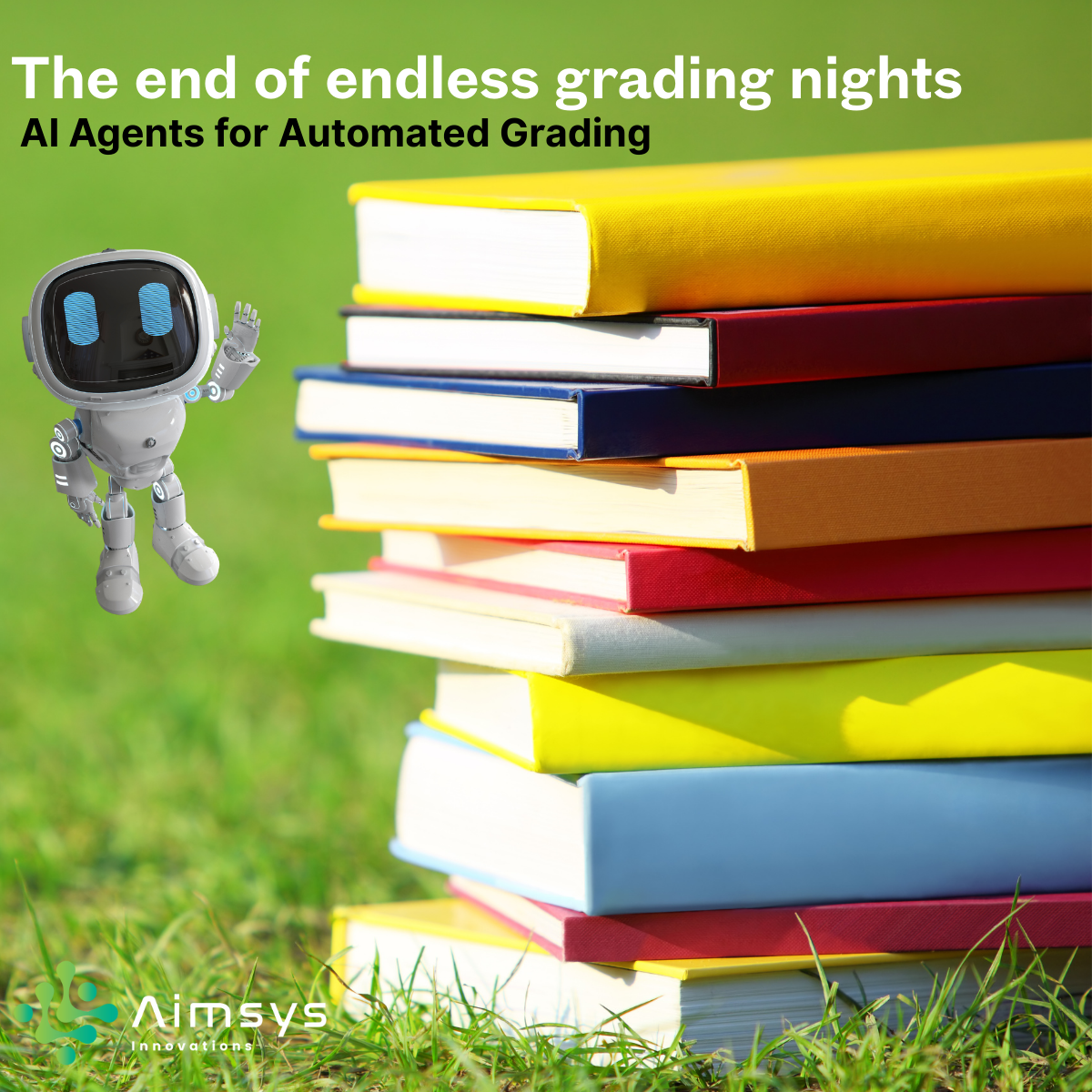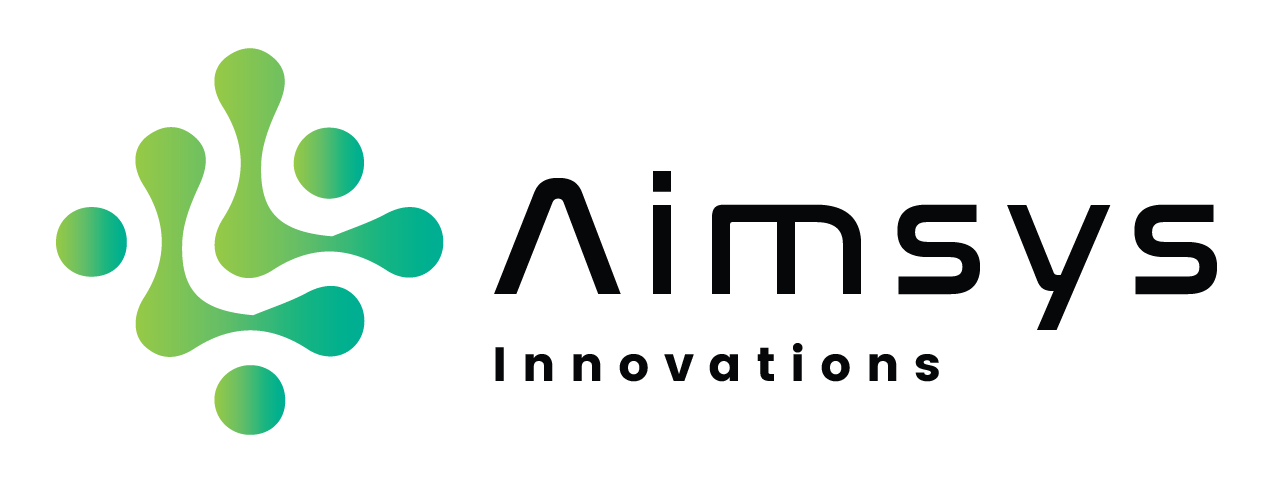Posted At: Aug 26, 2025 - 499 Views

AI Agents for Automated Grading – Evaluate Essays, Coding Assignments, and Quizzes Instantly
Introduction
Grading is one of the most time-consuming tasks for educators. Whether it’s reviewing essays, checking coding assignments, or marking quizzes, the process requires hours of careful evaluation. In large classes, this workload can quickly become overwhelming, leaving educators with less time for teaching, mentorship, and curriculum development.
Now, AI is transforming how assessments are handled. With AI-powered agents for automated grading, educators can evaluate student work instantly — while maintaining fairness, accuracy, and consistency. From language arts to computer science, these AI agents are becoming a game-changer in modern education.
What Are AI Agents for Automated Grading?
AI grading agents are specialized systems that use machine learning and natural language processing (NLP) to assess student submissions. They can be trained to evaluate different formats, such as:
- Essays and written responses– Checking grammar, structure, argument quality, and relevance.
- Coding assignments– Testing for correctness, efficiency, and code quality.
- Quizzes and objective tests– Instantly grading multiple-choice, true/false, and fill-in-the-blank questions.
Unlike traditional grading software, these AI agents can learn from grading patterns, adapt to rubric changes, and provide personalized feedbackfor students.
How AI Grading Agents Work
- Submission Intake
Students upload their work via a learning management system (LMS) or directly through an AI grading portal. - Automated Analysis
- For essays– NLP models analyze sentence structure, vocabulary, topic relevance, and clarity.
- For coding– AI runs the code against predefined test cases, checks for efficiency, and even detects plagiarism.
- For quizzes– AI matches answers to a key or uses logic-based assessment for open-ended responses.
- Rubric Alignment
AI grading agents can be aligned to an instructor’s specific grading rubric — whether it’s analytical, holistic, or criteria-based. - Feedback Generation
Students receive immediate feedback, including scores and improvement suggestions. This helps them learn and improve faster. - Instructor Oversight
Teachers can review AI-generated grades, make adjustments, and train the system for future accuracy.
Benefits of AI-Powered Automated Grading
1. Speed & Efficiency
AI agents can evaluate hundreds of assignments in minutes, freeing up hours of manual grading time.
2. Consistency & Fairness
Human grading can be influenced by fatigue, mood, or unconscious bias. AI applies the same standards every time, ensuring fair evaluation.
3. Instant Feedback for Students
Instead of waiting days or weeks, students get feedback instantly — allowing them to improve while the material is still fresh in their minds.
4. Scalability
AI grading agents can handle massive volumes of submissions, making them ideal for large classrooms, online courses, or MOOCs.
5. Customization
Educators can fine-tune AI to match their grading style and criteria, ensuring the technology supports their teaching philosophy.
Real-World Applications
- Universities & Colleges– Automating grading for general education courses with hundreds of students.
- Coding Bootcamps– Evaluating code in real time and providing targeted suggestions.
- Online Learning Platforms– Offering instant quiz results and essay evaluations to millions of learners worldwide.
- Corporate Training Programs– Quickly assessing employee knowledge after workshops or courses.
Real-World Examples
- Coursera & edX– Use AI-based systems to provide instant feedback on assignments and quizzes at scale.
- Gradescope (by Turnitin)– Helps automate grading of coding assignments and problem sets while giving instructors control over rubrics.
- ETS’s e-rater– Used in standardized testing (like GRE) to evaluate essays with speed and consistency.
How Business Owners & Institutions Can Adopt AI Grading Agents
- Start Small– Begin with quizzes or coding exercises before moving to essays.
- Integrate with LMS– Ensure AI agents connect seamlessly with platforms like Moodle, Canvas, or Google Classroom.
- Customize Rubrics– Align the AI’s evaluation with your institution’s standards.
- Maintain Human Oversight– Use AI as a co-pilot, not a replacement, for educators.
- Leverage Analytics– Use aggregated insights to improve course design and student support.
Challenges and Considerations
While AI grading agents offer significant advantages, there are important factors to consider:
- Accuracy & Context– AI may misinterpret creative writing or unconventional problem-solving approaches.
- Bias in Training Data– If the AI is trained on biased examples, it can replicate those biases.
- Human Oversight– AI grading should be a support tool, not a complete replacement for teacher judgment.
- Privacy & Security– Student data must be stored securely and comply with regulations like FERPA or GDPR.
The Future of AI in Grading
As AI technology advances, grading agents will become even more sophisticated. We can expect:
- Deeper understanding of contextin essays and creative work.
- Automated plagiarism detectionintegrated into the grading process.
- Adaptive feedback systemsthat suggest personalized learning resources based on student weaknesses.
- Multi-modal gradingthat can assess not just text and code, but also presentations, videos, and projects.
Ultimately, the goal isn’t to replace educators but to empower them — giving them more time for meaningful teaching, mentorship, and student engagement.
Conclusion
AI agents for automated grading are revolutionizing the way educators handle assessments. By instantly evaluating essays, coding assignments, and quizzes, these tools bring speed, fairness, and actionable feedback into the learning process.
In a world where classrooms are increasingly digital and class sizes are growing, AI-powered grading isn’t just a convenience — it’s becoming an essential part of modern education.
